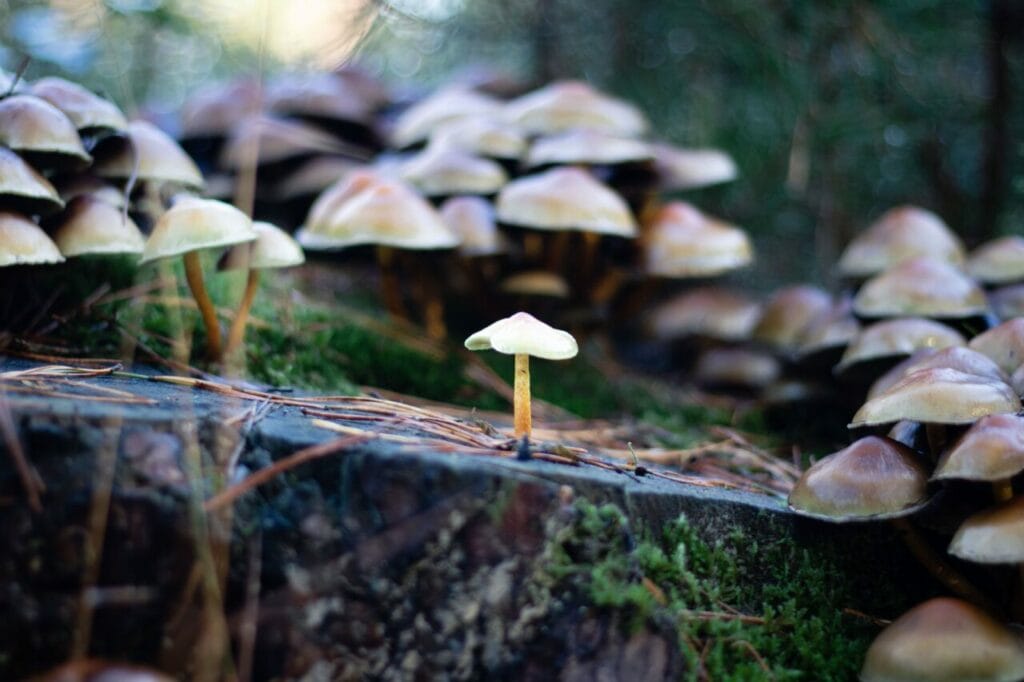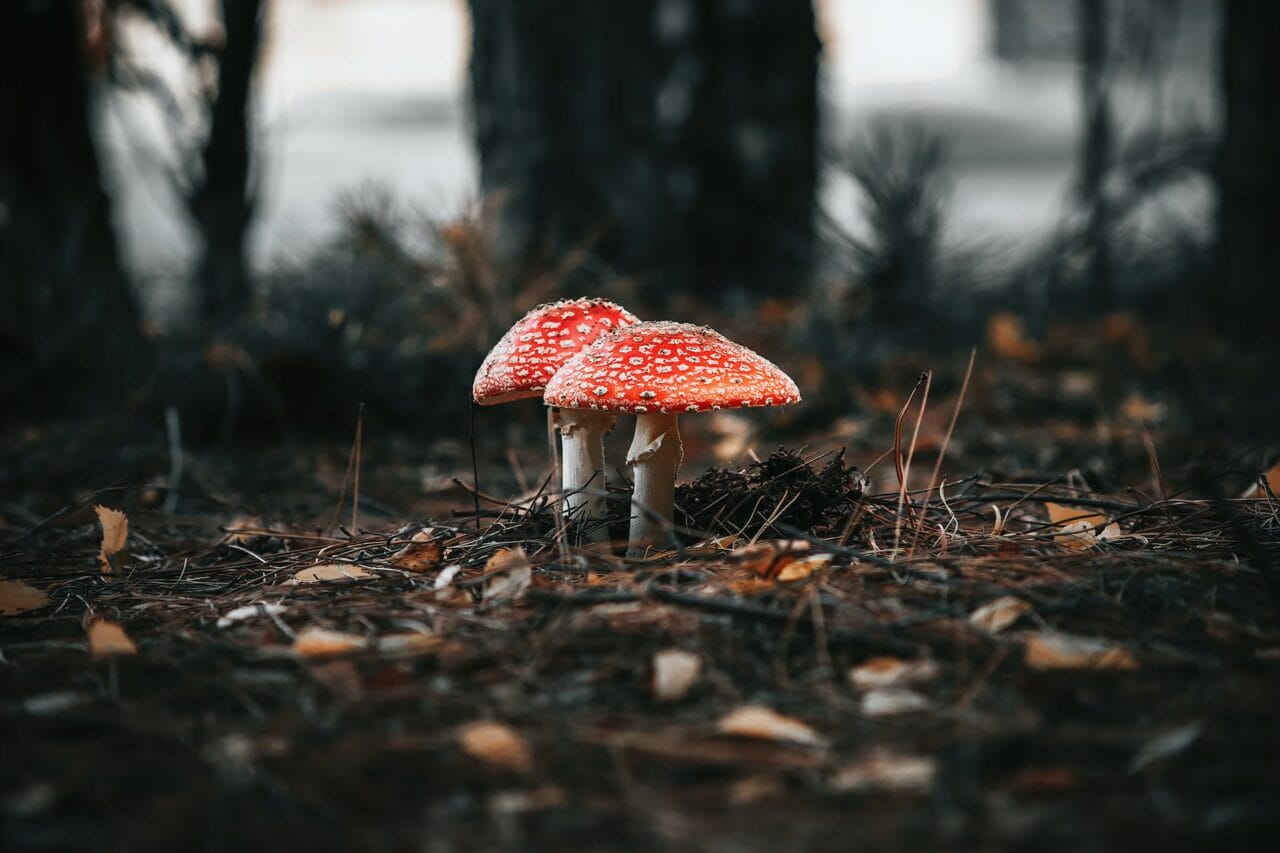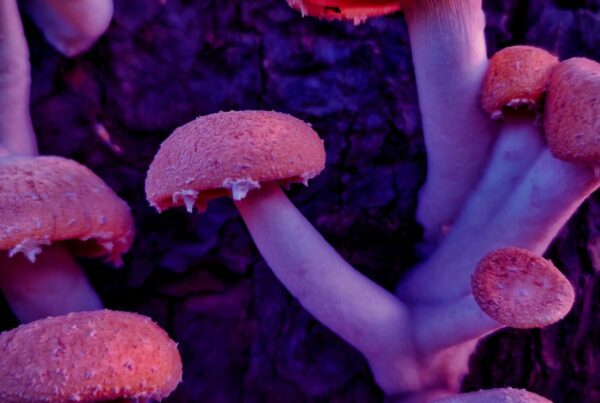There is an increasing fascination with psilocybin, fueled by studies highlighting its potential benefits in treating mental health disorders like anxiety and addiction. Nonetheless, access to psilocybin remains a challenge. There are limited laboratories and shroom delivery services offering magic mushrooms, and the prices can be hefty.
This article delves into the evolution of psilocybin, its current status, and the potential advantages it brings to those seeking help.
[toc]Key Takeaways:
- Growing mushrooms requires significant effort and keen observation to avoid contamination during the inoculation phase.
- Psilocybin creates a psychedelic experience by interacting with numerous brain areas, especially the serotonin receptors.
- Psilocybin only marginally increases the heart rate, which returns to normal shortly after consumption, and generally does not lead to other negative effects.

Ensuring Only Top-Quality Magic Mushrooms
Magic mushrooms naturally thrive in diverse environments including manure-rich fields, leafy temperate forests, grasslands, and woodlands. Over time, people have scoured these areas to collect these fungi for medicinal purposes or for use in spiritual and religious rituals.
Conventional Method
Currently, the traditional practice of hunting for mushrooms in these natural habitats is less common. This shift may be attributed to the rise of alternative methods such as cultivation or the possibility to order magic mushrooms online.
Wild mushrooms are often less potent than their laboratory-grown counterparts, which are carefully cultivated under regulated conditions. Furthermore, there’s a risk of accidentally picking a poisonous species when foraging in the wild.
Contemporary Method
The shroom production process begins with nurturing spores to maturity, which involves a complex procedure that requires a
Ensuring the purity of the mushrooms during the inoculation phase requires a considerable investment of time and meticulous care to prevent potential contamination. Once ready for harvest, labs or cultivators typically dry the mushrooms to prolong their shelf life. Fresh mushrooms can only be stored for a few days, but dried mushrooms can last several months, and in some cases, up to a year.
Manufacturers transform dried mushrooms into a range of products, including microdose capsules, edibles, tinctures, and beverages. These products are then distributed across Canada through magic mushroom delivery services.
Harnessing the Potential of Psilocybe Cubensis or Magic Mushrooms
Researchers conduct clinical trials on mushrooms primarily to understand their impact on mental health and mood disorders, drawing from anecdotal evidence. There is a plethora of studies exploring these effects, from microdosing with capsules to engaging in a full-blown mushroom trip with dried mushrooms or chocolate edibles.
Once consumed, psilocybin is metabolized into psilocin, a compound that functions similarly to serotonin, a mood-regulating neurotransmitter. It interacts with several brain areas, primarily the serotonin receptors, to initiate a psychedelic journey.
People participating in psilocybin therapy often report transformative changes that extend beyond heightened sensory perception and visual changes. These experiences can result in a substantial shift in self-perception and a deep alteration in personal perspective, often marked by profound insights.
Depression and Suicidal Thoughts
In a study featured in the Journal of Psychopharmacology, researchers examined the impact of a psychedelic experience on individuals dealing with depression and suicidal thoughts. Most participants described their experience with psilocybin as highly significant and underscored its potential influence on their lives. Such high levels of satisfaction could potentially enhance the effectiveness of therapy, considering the crucial role of patient engagement in mental health interventions.
Safety Profile
Researchers not only explore the effects of psilocybin on depression and anxiety but also investigate its safety profile. A study in JAMA Psychiatry reveals that participants who consumed psilocybin showed a slight rise in heart rate and blood pressure two hours post ingestion. Nevertheless, further analysis with Holter monitoring revealed no significant increase in the risk of cardiac arrhythmias in the psilocybin group compared to the niacin group. The study also found
Users show no substantial psychological distress.





